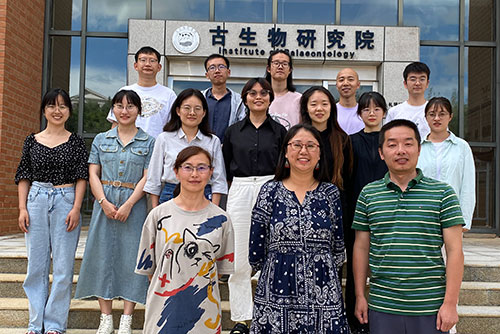 Xiaoya Ma. Yunnan Key Laboratory for Palaeobiology, Yunnan University, China
Xiaoya Ma. Yunnan Key Laboratory for Palaeobiology, Yunnan University, China
X.Ma2@exeter.ac.uk
Xiaoya Ma studies the origin and early evolution of animal life, especially during the major transitions in evolutionary history. Xiaoya obtained a BSc in Biology (2003) and an MSc in Zoology (2005) from Yunnan University, China. She then went to the University of Leicester in the UK and earned her PhD in palaeontology (2009). After that, Xiaoya worked at the Natural History Museum in London as a postdoctoral research fellow until 2018. Xiaoya is now the Deputy Dean of the Institute of Palaeontology at Yunnan University, China and a senior lecturer in evolutionary biology at the University of Exeter, UK. Xiaoya’s research work has been primarily focused on the ‘Cambrian Explosion’ when all major animal groups suddenly appeared in the fossil record during a critical transition from the late Ediacaran to the early Cambrian periods (around 541 million years ago). Xiaoya has been dedicated to working on the exceptionally well-preserved Cambrian Chengjiang Biota from Yunnan Province, Southwest China. Her research interests include: 1) exploring the biodiversity of exceptionally preserved Cambrian fossil assemblages and investigating the phylogenetic relationships among Cambrian animals and their bearing on the origin and early evolution of modern taxa; 2) unravelling exceptionally preserved anatomical structures of Cambrian animals, such as nervous systems, visual systems and cardiovascular systems; 3) investigating exceptional preservation pathways of these labile structures and taphonomic biases on these early Cambrian fossils; 4) elucidating modes of life and symbiotic relationships of the Cambrian animals; 5) reconstructing the living and depositional environments of the Chengjiang biota and integrating the role of palaeoenvironmental changes in the evolution of complex life.
 Ma and her students manage Chinese translations for PE. Each student is named on their translation of the abstract.
Ma and her students manage Chinese translations for PE. Each student is named on their translation of the abstract.

